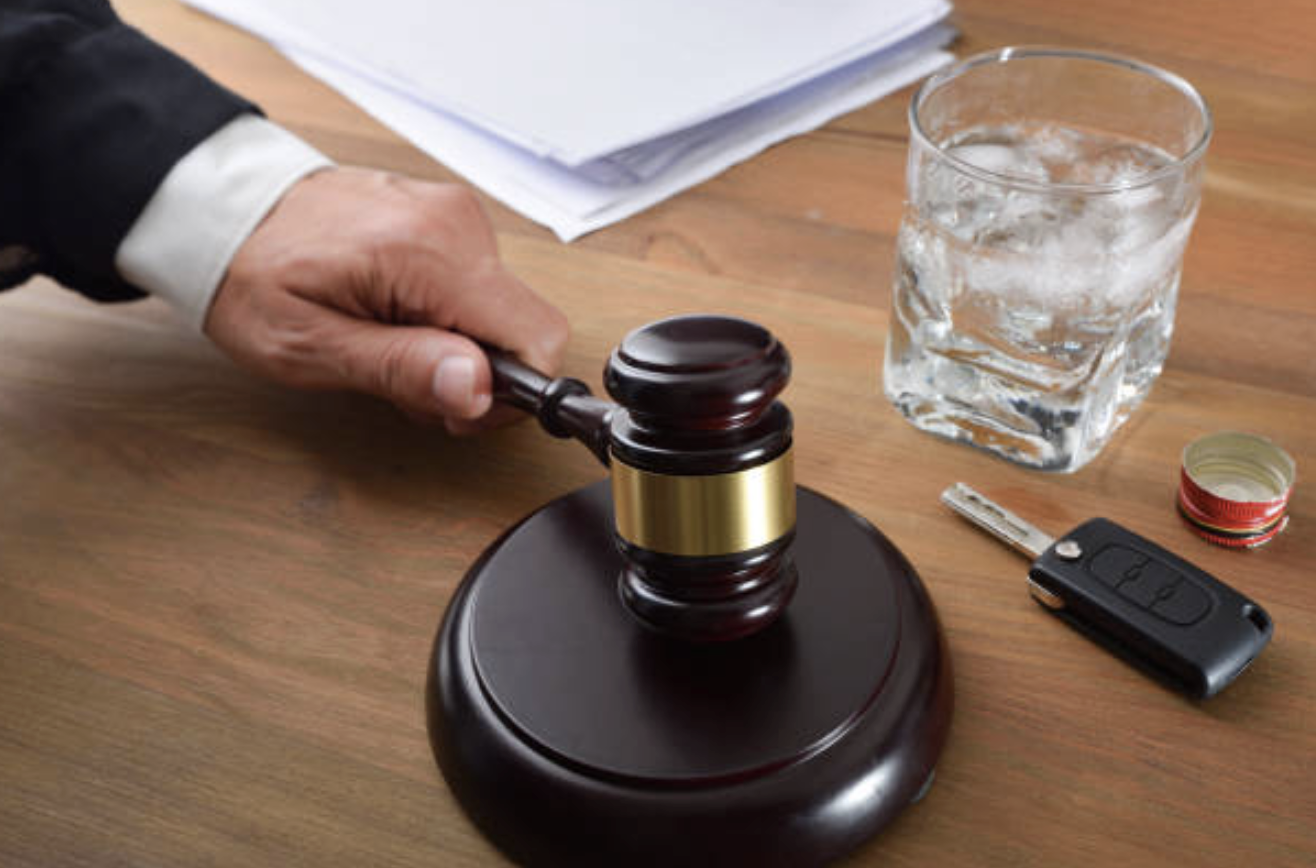Now Reading: Common Defense Strategies Used by DUI Lawyers
-
01
Common Defense Strategies Used by DUI Lawyers

Common Defense Strategies Used by DUI Lawyers
Driving under the influence (DUI) charges wield grave consequences, encompassing license revocation, substantial fines, and potential incarceration. In the face of such charges, individuals frequently enlist the aid of DUI lawyers to navigate legal intricacies and mount a formidable defense. These legal professionals deploy an array of defense tactics to challenge the prosecution’s case, striving to mitigate penalties or secure exoneration. This expansive guide elucidates the commonplace defense strategies employed by DUI lawyers, elucidating the legal maneuvers executed to safeguard the rights of individuals ensnared in DUI allegations.
Comprehending DUI Charges: Legal Terrain
Before delving into defense strategies, grasping the legal landscape encompassing DUI charges is imperative. Across most jurisdictions, DUI offenses hinge on a driver operating a vehicle with a blood alcohol concentration (BAC) surpassing the legal threshold, typically set at 0.08%. Furthermore, DUI charges can extend to impairment stemming from drug usage or a combination of alcohol and drugs.
Contesting the Traffic Stop: Cornerstone of Defense
1.1 Unlawful Stop or Detention
A prevalent defense strategy entails contesting the legality of the traffic stop. DUI lawyers meticulously scrutinize the circumstances precipitating the stop, assessing whether law enforcement harbored reasonable suspicion or probable cause. Should the stop prove unlawful, subsequent evidence may be deemed inadmissible, enfeebling the prosecution’s case.
1.2 Insufficiency of Probable Cause for Arrest
Beyond the initial stop, DUI lawyers dissect whether law enforcement demonstrated adequate probable cause for the arrest. Inadequate establishment of a reasonable belief regarding the driver’s intoxication may prompt challenges to the arrest, potentially resulting in the exclusion of pivotal evidence.
Disputing Field Sobriety Tests: Maneuvering Subjectivity
2.1 Reliability of Standardized Field Sobriety Tests (SFSTs)
Field sobriety tests, including the Walk-and-Turn or Horizontal Gaze Nystagmus, often feature in DUI stops. DUI lawyers frequently impugn the reliability of these tests, citing factors like adverse weather conditions, uneven terrains, or medical conditions that might impinge upon a driver’s performance. They contend that these tests harbor inherent subjectivity and may not accurately gauge impairment.
2.2 Erroneous Administration of Field Sobriety Tests
Another facet of defense involves scrutinizing the administration of field sobriety tests. DUI lawyers may assert that law enforcement officers deviated from standardized procedures, thereby compromising test validity. Instances of improper instructions or disregard for physical limitations may cast doubt upon test outcomes.
Questioning the Precision of Chemical Tests: BAC and Beyond
3.1 Calibration and Maintenance of Breathalyzers
Chemical tests, particularly breathalyzer results, wield considerable influence in DUI cases. Defense lawyers frequently impugn the accuracy of breathalyzer apparatuses by questioning their calibration and maintenance records. Failure to adhere to proper calibration or maintenance protocols may impugn the reliability of BAC results.
3.2 Blood Test Integrity or Mishandling
In cases involving blood tests, DUI lawyers may challenge test results by scrutinizing blood sample handling procedures. Instances of contamination, mishandling, or improper storage may undermine sample integrity, furnishing grounds for the exclusion of blood test results.
Propounding a Rising BAC Defense: Temporal Significance
4.1 Retrograde Extrapolation
DUI lawyers occasionally invoke the rising blood alcohol concentration (BAC) defense, known as retrograde extrapolation. This strategy endeavors to demonstrate that the driver’s BAC was below the legal threshold at the time of driving but escalated beyond it by the time of the chemical test. Factors such as elapsed time since driving, metabolic rates, and absorption patterns underpin this defense.
4.2 Mouth Alcohol Contamination
Mouth alcohol contamination transpires when residual mouth alcohol influences breathalyzer outcomes. DUI lawyers may contend that specific conditions, like gastroesophageal reflux disease (GERD) or recent mouthwash usage, engendered inaccurate breathalyzer readings. This defense impugns the reliability of chemical tests.
Medical Conditions and Medications: Unraveling Complexity
5.1 Medical Conditions Impacting DUI Tests
DUI lawyers probe whether the driver’s medical conditions might have influenced field sobriety or chemical test outcomes. Conditions such as diabetes, neurological disorders, or injuries may distort performance, potentially leading to misinterpretations of impairment.
5.2 Medication Interactions and Impairment
Prescription and over-the-counter medications can elicit side effects mirroring impairment. DUI lawyers may contend that observed signs of impairment stemmed from medication interactions rather than substance usage. Establishing a nexus between medication and observed behavior constitutes a pivotal facet of this defense strategy.
Scrutinizing Rights Violations: Safeguarding Constitutional Guarantees
6.1 Breach of Miranda Rights
DUI lawyers scrutinize whether law enforcement duly apprised the accused of their Miranda rights during the arrest. Any lapse in providing these rights, including the right to remain silent or the right to legal counsel, may precipitate the exclusion of defendant statements.
6.2 Fourth Amendment Breaches
Defense strategies extend to Fourth Amendment rights, safeguarding against unwarranted searches and seizures. DUI lawyers ascertain whether law enforcement possessed a valid rationale for vehicle searches or chemical tests, contesting any encroachments upon the defendant’s constitutional rights.
Negotiating Plea Deals and Alternative Sentencing: Palliating Penalties
7.1 Plea Bargains for Reduced Charges
Acknowledging potential courtroom challenges, DUI lawyers often engage in negotiations with prosecutors to secure plea bargains. This may entail pleading guilty to lesser offenses, thereby attenuating penalty severity in exchange for cooperation and admission of culpability.
7.2 Alternative Sentencing Modalities
In certain scenarios, DUI lawyers explore alternative sentencing avenues, such as diversion programs, rehabilitation, or community service. These modalities aim to address underlying DUI triggers while furnishing individuals with opportunities to circumvent conventional punitive measures.
Leverage of Expert Witnesses and Legal Acumen: Forging a Stalwart Defense Cadre
8.1 Deployment of Expert Witnesses
DUI lawyers frequently enlist expert witnesses, encompassing toxicologists, accident reconstruction specialists, or medical practitioners, to fortify their defense. These experts furnish insights into test validity, medical condition impacts, or arrest circumstances, bolstering defense contentions.
8.2 Specialized DUI Defense Advocates
Given DUI case intricacies, accused individuals often seek the services of specialized DUI defense attorneys. These legal practitioners harbor profound comprehension of DUI laws, regulations, and defense stratagems, proffering a targeted approach to navigating DUI charge complexities.
Conclusion: Traversing the DUI Legal Labyrinth
Traversing DUI charges can prove a daunting endeavor, yet acquainting oneself with prevalent defense strategies deployed by DUI lawyers unveils avenues for legal redress. Whether by contesting traffic stop legality, meticulously dissecting chemical test outcomes, or engaging in negotiations for alternate sentencing, the realm of DUI defense mandates nuanced and comprehensive strategies. For individuals embroiled in DUI allegations in Columbus, the guidance of seasoned professionals, such as the Columbus DUI Lawyer, assumes paramount significance. Soliciting the aid of a seasoned DUI lawyer ensures the formulation of a strategic defense tailored to case-specific exigencies. Amidst the convoluted legal maze of DUI charges, the amalgam of knowledge and legal adeptness emerges as indispensable for those earnestly pursuing justice and safeguarding their rights.
About the author: Kerry L. Tucker
Early in his journalism college years, Kerry had a revelation: there were not nearly enough law communicators. People’s difficulties in understanding the law, procedures, and how the justice system worked stemmed from the fact that no one took the patience to explain complicated matters to them. Therefore, he took upon himself the task of helping people navigate legal matters easier. He works with attorneys and other legal journalists and spends time researching so that everyone – from a mother whose child got a bike injury to a company needing insurance counsel – to find the actionable answers they are looking for.











